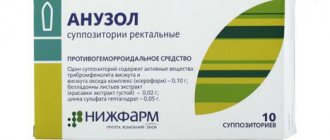Curantil: composition and mechanism of action
It is an antiplatelet agent and immunomodulator. The drug, by normalizing microcirculation, avoids many complications during pregnancy. Among them are gestosis, migraines, pressure fluctuations and other health problems in women, hypoxia and intrauterine fetal death, early aging of the placenta, and premature birth.
The active ingredient is dipyridamole. It improves immunity and protects the expectant mother from harmful bacteria and viruses, prevents thrombosis, and stimulates the production of interferon.
It has the form of a yellow dragee. There are 2 options for tablets in pharmacies:
- Curantil 25 - it contains 25 mg of active substance;
- Curantil 75 - respectively, 75 mg.
In this article we will tell you everything about Curantil: how to take it, when it can be done, and when it is strictly prohibited, about the effectiveness and action of the drug, its analogues.
To improve blood flow in the placenta
Pregnant women are susceptible to thrombosis due to hormonal imbalance and metabolic disorders. Chronic diseases, such as heart and blood vessels, and high cholesterol levels also increase the risk. Blood clots clog blood vessels and block blood access to the placenta. And the unborn child suffers from a lack of oxygen, and there is a high risk of complicated pregnancy and labor.
Under the influence of the drug, the walls of blood vessels relax, blood circulation improves, blood flows better to the placenta - enough nutrients and oxygen reach the fetus, and it grows and develops fully.
To prevent late toxicosis
Another reason to take medicine is the prevention of gestosis, or toxicosis in the 2nd 3rd trimester. This is a serious condition that is dangerous for both the woman and her child. Therefore, if there are signs or risk of developing gestosis, it is necessary to prevent the deterioration of the pregnant woman’s condition.
To protect against viral diseases
The body of the expectant mother is susceptible to virus attack, especially when pregnancy occurs in the autumn-spring period. In turn, temperature and other signs of a viral disease can negatively affect the further development of the child. This is why it is so important for a woman to protect herself from infection - taking Curantil makes it easier for the expectant mother to resist seasonal diseases.
Are there any possible adverse effects from taking it?
When taken for a short time in small doses, Curantil usually does not have a significant negative effect on the body. But if you have to drink it often according to indications, then the heart and blood vessels may experience symptoms of tachycardia and hot flashes. Sometimes some patients experience a decrease in blood pressure. Some people experience abdominal pain and discomfort.
After regular use of the drug, a person may experience a tendency to bleed for some time and a decrease in platelet levels. People with a tendency to allergic reactions sometimes experience a skin rash, which quickly disappears after discontinuation of the drug.
Benefits of Kurantil for mother and baby
The drug normalizes microcirculation, nourishing and enriching every cell with oxygen. It does not pass through the placental barrier, which means it does not harm the baby. At the same time, it has a beneficial effect on the blood vessels of the placenta, and it is through them that the fetus receives everything it needs for growth and development.
Therefore, gynecologists prescribe the drug to expectant mothers. Many women consider it an ordinary vitamin, although this is far from the case: this is a serious medicine that can only be prescribed by a specialist after examinations and if indicated.
Contraindications
Curantil should be prescribed by a doctor after examining the patient. This is due to the fact that the drug has contraindications, including complete ones. These include:
- acute myocardial infarction;
- unstable angina;
- atherosclerotic lesions of the coronary vessels (those that supply the myocardium with arterial blood enriched with oxygen), especially in the presence of their narrowing;
- heart failure of chronic origin and course;
- narrowing of the aorta;
- heart rhythm pathologies;
- hypotension or complicated hypertension;
- renal, liver failure;
- the likelihood of bleeding in the gastrointestinal tract or any other;
- intolerance to individual components of the drug;
- children under 12 years old.
Effect of the drug
Let us list the effects that Curantil has on the body of the expectant mother:
- The circulatory system is strengthened;
- Blood circulation improves, in particular microcirculation;
- Thinning the blood is a good prevention of blood clots;
- Prevention of such symptoms in women: convulsions, migraines, swelling, high blood pressure, kidney problems;
- The immune system is strengthened - prevention of viral and colds during pregnancy;
- Prevention of fetoplacental insufficiency - protects the baby from hypoxia and developmental disorders.
The medicine is quickly eliminated from the body and is harmless. Many obstetricians prescribe it to their patients at the stage of pregnancy planning.
At what stages of pregnancy is it prescribed?
The attitude of domestic and foreign gynecologists towards the drug is different.
In Russia, doctors use it for the prevention and correction of conditions in women in early pregnancy, but not in the West. If your doctor prescribes you a drug, but you are in doubt, consult with other gynecologists.
However, domestic obstetricians prescribe pills in the early stages. Depending on the woman’s health condition and the course of pregnancy, the gynecologist prescribes a treatment regimen: for example, a course or for almost three trimesters until childbirth.
Reviews
Reviews about the use of the drug during pregnancy are quite varied, since the reaction to the effect of the drug is individual for everyone. If allergic reactions to the active substance or its components occur. You should consult a specialist if side effects occur.
There are a sufficient number of positive reviews. Taking it during pre-pregnancy (before pregnancy) preparation helped to get pregnant, maintain pregnancy, prevent many complications and give birth to a baby.
There are a number of women who are against the use of this drug. This is due to low awareness of its action and insufficient research on this medicine.
Reviews from pregnant women
Larisa: We prescribed the drug Curantil during our first pregnancy.
I read a lot of reviews after the appointment, so I was absolutely calm. The reason for the prescription was arterial hypertension. The blood pressure returned to normal thanks to this drug. Alina: The drug was prescribed to me when planning my second pregnancy. I heard quite a lot of feedback from friends, especially about the need to follow the dosage. Having accidentally mixed up the dose, I started vomiting and had a terrible headache. The result was that the ambulance took him away. Curantil was replaced with an analogue, so I cannot objectively characterize the drug.
Alexandra: I took Curantil during pregnancy. The reason for the appointment was that at 35 weeks hiccups were discovered in the child. After therapy everything returned to normal. As the doctor explained, due to improved blood circulation.
Reviews on the forum
Natalya: I was prescribed Curantil, but I practically didn’t drink it. After taking the pill, I immediately began to feel weak. After the doctor diagnosed me with a large fetus, Curantil was cancelled. It is prescribed to improve fetal nutrition.
Irina: Prescribed for impaired blood flow in the placenta, which can lead to delayed fetal development and hypoxia. After three days of taking it, everything returned to normal (ultrasound showed), I had to drink it for 21 days, I often forgot, I drank it somehow. The next ultrasound showed everything seemed fine.
Violetta: I take “Curantil” as prescribed by the doctor, 3 times a day after meals, 1 tablet. I was told to take it for 3 weeks. I've been drinking it for 2 weeks now. I drink because at the very beginning of my pregnancy I suspected placental abruption. They say it greatly strengthens the future placenta. I have no side effects from it, I feel great.
Tatyana: I’m still taking Curantil (7th month), I need to take it until the end of my pregnancy. Almost two years ago I had a frozen pregnancy at 7 weeks. Then I went through a huge number of examinations, it turned out that I have high blood clotting, and Curantil was used to thin the blood. I started taking it before conception, and within 2 weeks I became pregnant. I take 2 tablets 2 times a day (the number of tablets varies individually), and I tolerate it perfectly. It is necessary to be tested for D-dimers every 1.5-2 months. If the result is more or less (mostly less), then the dose of Curantyl may be increased.
Reviews from doctors
Shapovalov Yuri Yuryevich, obstetrician-gynecologist: A wonderful drug that, depending on the dosage and regimen, has antiplatelet, vasodilating and immunomodulatory effects.
Suitable for use by pregnant women with fetoplacental insufficiency. It is well tolerated, there are no allergic reactions during the entire period of use in practice. Anzhelika Ivanovna Khodunova, obstetrician-gynecologist: “Curantil” tablets in a dosage of 25 mg are an excellent drug that has received both delight and disappointment from doctors. But the drug survived and was completely rehabilitated (in the 80s it was attributed to the “steal” syndrome). It is a pity that in the Russian Federation there is currently no purchase of its injection form at 2.0 for intramuscular administration.
Dyatlov Alexander Petrovich, obstetrician-gynecologist: For many conditions, it is very important to ensure a sufficient level of oxygen in the blood. This enhances the effect of the treatment. Curantil has such excellent properties, which is used both in obstetric practice and is widely used among other specialties. The effect of the drug is cumulative, so you should wait a little before getting a visible result.
Thus, Curantil is a drug that has excellent effects, but has quite contradictory reviews. But one cannot deny the visible effect of therapy with this drug. It should be remembered that the dose and regimen are prescribed by a medical specialist.
When is Curantil necessary?
According to the instructions, tablets are prescribed if a woman has a history of the following health problems:
- increased blood clotting, proven by tests - the risk of blood clots, the blood needs to be thinned;
- varicose veins - increased risk of swelling and blood clots;
- Previously, the woman could not bear a child, for example due to a miscarriage;
- atherosclerosis. Cholesterol is deposited on the vessels, which also risks the formation of blood clots in this area;
- cardiovascular diseases. To protect a pregnant woman from a heart attack or stroke, she is prescribed Curantil 25 or 75.
Admission is indicated for placental insufficiency, deterioration of blood supply to the kidneys, uterus and other organs, as well as for postterm pregnancy.
Side effects of the drug Curantil
Usually mild and transient: from the cardiovascular system: headache and dizziness of vascular origin, arterial hypotension, skin flushing with a feeling of heat, tachycardia, especially when using vasodilators, sometimes - exacerbation of coronary heart disease; with abrupt withdrawal of the drug, unstable angina or heart attack may develop myocardium; from the gastrointestinal tract: nausea, vomiting, diarrhea, dyspeptic disorders; from the hepatobiliary system: there are reports that dipyridamole is part of gallstones; from the skin and subcutaneous tissue: skin rash and urticaria; from the immune system: bronchospasm and Quincke's edema are possible; from the blood and lymphatic system: very rarely - increased bleeding during or after surgery, in some cases - thrombocytopenia. from the musculoskeletal system: myalgia; general disorders: general weakness.
In what cases is the drug prohibited?
Tablets Curantil 25 and Curantil 75 are strictly prohibited for the following diagnoses:
- Cardiovascular diseases: coronary heart disease, atherosclerosis of the arteries supplying the heart, angina pectoris, aortic stenosis, collapse, arterial hypo- and severe hypertension, severe arrhythmias;
- Decompensated heart failure;
- Chronic lung diseases;
- Chronic renal and liver failure;
- Diseases of the hemostatic system: hemorrhagic diathesis;
- Predisposition to bleeding;
- Patients with duodenal and gastric ulcers are at risk.
Individual intolerance to the components of the drug also excludes the use of Curantil 25 and 75.
In each case, the decision whether a woman can take pills or not is made by the attending physician, based on the test results and the general condition of the patient.
Indications for use of the drug Curantil
Stable angina, chronic heart failure, prevention and treatment of myocardial infarction, prevention and treatment of ischemic cerebral circulatory disorders, chronic cerebral circulatory failure, discirculatory encephalopathy, vascular insufficiency, prevention of the formation of arterial and venous blood clots and thromboembolic complications (in combination with acetylsalicylic acid or with anticoagulants), prevention of thromboembolism after heart valve replacement, prevention of placental insufficiency, intermittent claudication, as part of complex therapy for microcirculation disorders of various origins.
How to drink Curantil during pregnancy
Only a doctor should prescribe a treatment regimen and dosage!
As a rule, expectant mothers are prescribed tablets in a dosage of 0.025 g. On an individual basis, the gynecologist can prescribe a larger dosage.
According to the instructions, you need to take the medicine 3 times a day. Here are some admission rules:
- It is optimal to take the tablet 1 hour before meals. But it is possible 2 hours after it;
- Swallow it whole, do not chew it;
- Take it with water (a few sips are enough). Never drink pills with coffee or tea - they reduce effectiveness;
- Take your medicine at the same time, and don't forget about it.
If you have not taken Curantil 25 or 75 before, monitor how you feel. If you notice any reactions or signs of overdose, stop taking the tablets and consult a doctor.
Use in late pregnancy
Before childbirth, the drug is discontinued. It thins the blood and can therefore cause bleeding. In the later stages, this is dangerous for both the mother and the baby.
Strictly adhere to the treatment regimen prescribed by your gynecologist. In this case, it is guaranteed to be safe for you and the child. After all, the effectiveness and safety of the drug has been proven by many years of its use in obstetrics and gynecology.
What analogues and substitutes are there?
There are many analogues of the drug produced in Russia and abroad on sale. They may also contain dipyridamole or other active ingredients.
| Name | Manufacturer | Active substance | Price |
| Dipyridamole | "Obolenskoye FP", Russia | Dipyridamole | 100 tablets - 350 rubles |
| Trombital | Pharmstandard, Russia | Acetylsalicylic acid | 100 tablets -180 rubles |
| Aspirin Cardio | Bayer Pharma, Germany | Acetylsalicylic acid | 20 tablets - 80 rubles |
| Clopidogrel | "Teva", Israel | Clopidogrel hydrosulfate | 28 tablets - 720 rubles |
| Plavix | Sanofi, France | Clopidogrel hydrosulfate | 28 tablets - 760 rubles |
| Plagril | Dr Reddy, India | Clopidogrel | 100 tablets 370 rubles |
| Actovegin | Takeda GMBH, Austria | Hemoderative from calf blood | 50 tablets 1400 rubles |
Despite the fact that all such remedies improve blood circulation and thin the blood, it is difficult to say which one is better. Many people focus on price. Curantil itself costs 600-700 rubles per package of 25 mg tablets.
Adverse reactions when taking tablets
Curantil 75 and 25 are not vitamins, but a serious drug. Therefore, if taken incorrectly and individually, it can cause negative reactions. Therefore, if you notice any of the symptoms that we list below, contact your doctor:
- The pulse quickened;
- Blood rushes to the face, heat;
- The heart rhythm is disturbed - bradycardia or tachycardia begins;
- Stomach pain, vomiting or diarrhea;
- Feeling dizzy or dizzy, or having tinnitus;
- Drowsiness, weakness, bronchospasm appeared;
- An allergic reaction has appeared: skin rash or itching, urticaria, rhinitis.
To reduce the risk of adverse reactions, follow these recommendations.
How to minimize negative reactions
First, do not take the medicine if you are at risk. Especially if you have acute problems with the cardiovascular system, lungs, kidneys, or liver. We have already talked about this above.
Secondly, take a coagulogram. This test will evaluate blood clotting. It is especially important to take it to women with peptic ulcer disease.
Thirdly, during the course, give up tea, coffee and products that contain it. They not only reduce the effectiveness of the drug, it generally does not combine well with caffeine. Moreover, coffee is also harmful to your unborn baby.
Fourth, take the drug under the strict supervision of a doctor if you have genital herpes, ARVI and other infections that often recur. In this case, you need to regularly monitor your blood clotting parameters.
Fifth, take the tablets with milk. This will help reduce the risk of developing an allergic reaction.
If you take any medications on a regular basis, be sure to inform your gynecologist. Since some drugs may affect the effectiveness of Curantil. For example, acetylsalicylic acid enhances its effect, and caffeine reduces it.
Curantyl is also prescribed in combination with Actovegin.
Pharmacological properties of the drug Curantil
Pharmacodynamics. Curantil is an antiplatelet agent that inhibits the reverse penetration of adenosine into the intracellular space, thereby increasing its concentration in the blood plasma and the antiplatelet effect on platelets and erythrocytes. In addition, Curantil increases the antiplatelet activity of prostaglandin E1 and in high doses inhibits PDE in platelets, as a result of which cAMP accumulates in them and the release of thromboxane A2 from them is inhibited, which leads to inhibition of platelet aggregation and an increase in their life expectancy. Thanks to the adenosine mechanism, the drug also dilates the coronary arteries, increases coronary blood flow and stimulates the formation of collaterals. Pharmacokinetics. After oral administration, it is quickly absorbed into the gastrointestinal tract, mainly in the stomach and partially in the small intestine. Absorption largely depends on the pH level of gastric juice, so bioavailability has significant individual variations and amounts to 43±13%. About 98% binds to blood plasma proteins and accumulates in the heart and red blood cells. Cmax in blood plasma is observed approximately 60 minutes after oral administration. Dipyridamole is metabolized in the liver by binding to glucuronic acid. T1/2 is 20–30 minutes. The drug is excreted mainly in bile and feces in the form of monoclucuronide.
What to replace: analogues of tablets
If for some reason you cannot take Curantil, your doctor may replace it with a similar drug. There are several such drugs. According to the instructions, they have the same indications, effect, composition and adverse reactions. The only difference is in the production technology and the company that produces the drugs.
Analogues include Persantine, Dipyridamole and Parsedyl.
Please do not self-medicate, especially during pregnancy. If you want to change the drug, inform your gynecologist.










